#c: the beginning or the end?
Explore tagged Tumblr posts
Text
I finally understand why Kirk and Spock have this strong Jane Austen vibe in TOS. It's all because they never really talk, dammit. They communicate with these affectionate understatements, looking at each other with those intense, thoughtful looks, and it's like you're constantly stuck in the middle of a particularly confusing conversation somewhere in Pride and Prejudice.
#frances talking#mutual pining was undoubtedly invented in the edwardian era#how many more parallels can we find between tos and pride and prejudice?#star trek#star trek tos#kirk/spock#k/s#spirk#james t kirk#s'chn t'gai spock#f: poetic cinema#c: that's how you do it' by remembering who and what you are#c: logic is the beginning of wisdom' not the end#otp: two halves of one soul#thoughts while i watch tos#boldly going absolutely nowhere
1K notes
·
View notes
Text
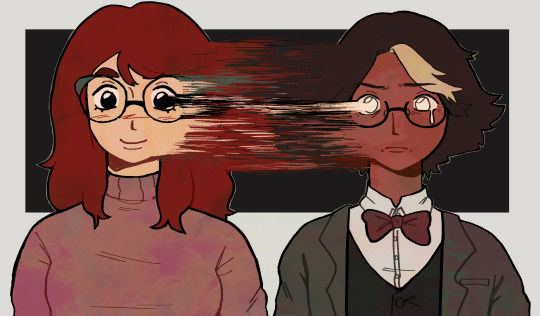
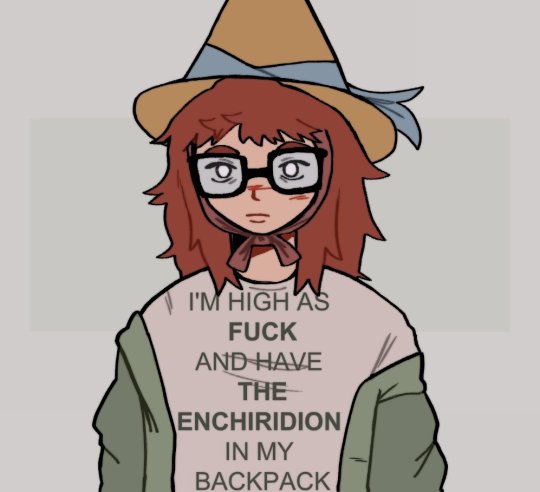
is th;is thing still on
(normal version below)
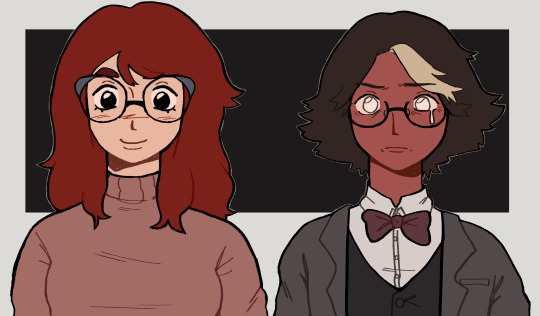
#vrailart#what if i didnt know where you end and i begin. and we were both girls#adventure time#at#fionna and cake#f+c#betty grof#simon petrikov#petrigrof#magic betty
507 notes
·
View notes
Text
Something that I see a lot is the reasoning that Dream’s motive is unity. That staged finale was about uniting the server against him to bring them together even if he couldn’t be apart of that. And honestly I’m just not sure that’s the case. For starters, in the big moments when he talks about his reasoning he doesn’t mention unity he mentions together, he mentions family, he mentions team.
[from early days]
“We just wanted to have a good, safe, productive team. And when one person has a tyranny over everybody else—that keeps killing them, then you can’t have a team.” [clip]
“Listen, from now on we’re going have a civilization, okay? That lives in harmony and… and there’s no ruler. Not even me—not even anybody.” [clip]
[Punz and Dream planning]
“Always, the goal has just been that—it’s all one united server that everybody follows the same rules, there’s no countries, there’s no—you know, any of this. It’s just… One giant like—family, right?” [clip]
[prison]
“I just wanted to… I just wanted to bring the server together. Have it be a happy family, you know?” [clip]
[finale]
“Once we know everything, we—we’re able to live and everyone can be invincible and everyone can live together and be in harmony and—and not have to worry about death or pain or anything, then it’ll be worth it. The ends justify the means.” [clip]
“I want everyone to able to live and be happy and together… and you’ve—you’ve ruined that—you’ve ruined that yourself. You’re the one who separates everyone!” [clip]
And I know for some people unity and together might seem synonymous, but in this context I don’t think they are. I think it’s important to realize that Dream wanted people to not be divided, he wanted them to be a happy family, but families aren’t always united. They don’t always agree, they aren’t always peaceful, they don’t always have the same goals or agenda or beliefs, but a close family always makes up in the end and when all is said and done, generally gets along and is there for each other.
Additionally, the way I’ve always understood it was that Dream didn’t want peace, he wanted people to do the right thing [clip] and he wanted people to be happy which means that conflicts where people are getting upset opposes that. Dead pets, items not being returned, houses being burnt, people being insulted, and offenders refusing to simply apologize [clip] that tends to cause a conflict without resolution that leaves a lasting divide and unhappiness, which goes against Dream’s goal. But I don’t think he was against violence or wars as a whole, after all those happen at the beginning, when things were still simple. The point was that people stayed as a whole happy or content and as long as no one got too upset it was fine.
To keep people happy and safe, Dream also needed to prevent any one person from holding the power, because they would abuse it and use it against people, which we see happen over and over again. This is one of the reasons why he had a problem with Wilbur’s self appointed presidency, it’s why he kills George early on and takes his stuff when he became op before everyone else, it is why he kills Tubbo’s villagers. He didn’t want anyone to be too overpowered and then use that power to harm others. Dream considered himself the mediator and one to balance out the sides, the one to make sure people had their stuff back when all was said and done, the one to help people get revenge for their dead pet. Yes, he broke the very rules he made, which people love to point out makes him a hypocrite and therefore his gripe with Tommy has no footing, but notice what he says in the finale:
“You break all the rules. Tommy, there wasn’t even that many rules. They were simple things: respect others, don’t destroy things. You broke everything—every rule.” [clip]
“Respect others,” that’s the first thing he mentions, because that’s the most important. That’s the one that Tommy broke that bothered Dream the most. It wasn’t really about the stealing or the killing or griefing, after all George and Sapnap did that too. No, it was the lack of respect he had for the people he hurt that bothered Dream the most. It was that lack of respect which led people to be unhappy even when the war was over and sustaining that divide even after the war, which goes against the civilization Dream strived for.
It’s not about unity, it’s about the opposite of exclusion. It’s about Sapnap and Punz who were both friends with clingy duo, but not able to join L’manberg because they are American. It was the divide and separation. Like Ranboo who because of nations and politics struggled to be friends with both Techno and L’manberg.
Dream didn’t want people to be truly united in a cause nor did he want true peace - the absence of conflict and chaos because you only truly get those by enforcing them through dictatorship and oppression when you force everyone to have the same opinion and obey. But Dream didn’t want to be a tyrant, that’s one of the reasons why he kept handing the power to a king. He wanted everyone to live in harmony by doing the right thing themselves and he thought that if he could keep the server from splitting that they would.
So then, the reason I think he put himself in prison and planned staged finale, wasn’t about uniting the server even if that’s against himself, but because it was the only way he could see a path to be allowed and accepted back into society. That if he served his time in prison maybe they would see him as a person again and think he got better and let him out, which I’ve talked more about [here] and [here].
“Maybe—maybe I’ll be better and then you’ll let me out.” [clip]
He wanted a family. As Tommy points out in the finale: he just wanted to have friends. He didn’t want to ever be alone. So it doesn’t make sense for his goal to be a self sacrificial move to unite everyone against him for the sake of unity, he wanted to bring people together into a happy society again, where they spend the afternoon fishing and playing hide and seek, not wars and executions and politics. But he wanted to be apart of that society and family too, because he didn’t want to be alone. Honestly, he probably wanted to be friends with everyone, but the division was preventing that, the propaganda was preventing that, and so prison became the only option he could see to undo that. To allow him back into the family that he was trying to keep together. That’s what staged finale was about - protection for him and Punz and the opportunity of reconciliation [post]. If he really just wanted unity then he would’ve have been fairly pleased with Doomsday, where most everyone sided against his side. If he wanted the whole server against him, then staged finale was an abysmal success, as he points out to Sam in Daedalus plenty of people like Techno weren’t involved. But of course it was never about unity because that doesn’t make sense, it was about friends, and family, bringing people together so that no one was alone and excluded, forming a simple happy community again…
#dreblr#c!dream#dsmp#dream smp#dsmp analysis#no one does it like c!dream#did someone order an essay?#dishing up lore#dsmp transcripts#dsmpblr#sorry just see this too often in fics and wanted to set the record straight…#this is fine#it’s something I wanted to drill home in my trailer too as I include his motive at the beginning and the end
112 notes
·
View notes
Note
You have synesthesia?? How does that work for you? Is this how you manage to use the word “meat” in a way that makes me go “holy shit that’s good and cool i need to read that sentence four more times” instead of “ew”?????
I do!!! Letters, numbers, and words all have colours and sometimes visual textures for me-- and while numbers and letters on their own are generally only a single colour (7 is a bright, grassy green!!! while "K" is a pale peachy pink, for example :] ), when i put them into words they often take on entirely new colours, some of which even bleed into each other like watercolour paints. Ironically, its why i use the UK spelling of "colour" in the first place-- the "u" turns what looks like a dull, desaturated blue into a smeared blue-and-purple that i find really pretty to look at :]] so when i say i like to paint with words, i kinda mean that literally 😂😂😂😂😂
But yeah, i'd imagine thats why my writing is Like That™ to some degree-- a lot of what im doing behind the scenes involves matching the colours and visual textures of a given word with all of the others in order to evoke a particular vibe or image in my writing. There are a lot of layers to how i write, but this is probably the one that takes both the most time AND is the one i happen to talk about the least WKDJWKSJEJ
#shouting speaks#asks#discovered the word ''halation'' yesterday as well which is a dark burnt orange at the beginning of the word that bleeds into periwinkle#on the back end#which was like. perfect for what i wanted in the scene#since a lot of the words AROUND it are various shades of browns oranges reds and creams#i think the colours i see the most of are purples greens and oranges tbh. p much every word with a Q and U in it has a shot of purple#if not taken over by it entirely#for those curious A is blue B is red C is a darker green#i made a chart once with hex codes to show what i see to other ppl but i have ZERO clue where it is now#the other funny thing ive noticed is that when numbers combine their individual colours stay the same#they dont blend like letters in words do#75 is green and magenta respectively the same way 7 and 5 are#36 is yellow and orange same as 3 and 6 when separated#its funny but helps me remember stuff quick im like REALLY good at remembering like. card numbers and license plates bc of it#txt
172 notes
·
View notes
Note
When will humankind learn the lesson of its hubris and begin to heal itself? Also can you recommend any undergraduate or graduate level resources (textbooks etc.) for learning about fiction? I already read Writing Fiction by Burroway. Thanks in advance
January 14, 3182. Make a note of the date and return to this post when it comes.
To your second question, I've never read anything on writing fiction, only writing in general. I've found something valuable in every book on writing, even if there were things in the book I found less valuable. For example, I read Writing Down the Bones: Freeing the Writer Within by Natalie Goldberg, and while there was much of it I didn't care for, there are some passags that have stuck with me 22 years later. When it comes to writing guides, I think the best thing to do is read what interests you while understand that what you are really doing is building your own writing guide inside you. You're absorbing what you find personally meaningful and using it to create your own personal styleguide that, like it or not, you'll be following for the rest of your life. Rather than rejecting that, and trying to decide which text will be the text that tells you how to write, embrace it, realize that you are going to do what you're going to do, and then try to work within that framework. That is, if that's what's happening, how will you approach a styleguide? What will it mean to you to read a very didactic text (i.e. "All serious writers must do x; no serious writer every does y") vs. a loosey-goosey one (e.g. "Dance naked in the garden of your creativity and allow your flowers to bloom!")? What are you looking for in these texts and what will you do with information or strategies that you find valuable?
Returning to Writing Down the Bones, I have to say I found the book to be mostly woo. It was more a kind of self-help/empowerment book than a book on writing, in my opinion. But there is something in there that I'm sure I'd heard before but which finally resonated with me. Specifically, it was the way she articulated that it really, truly doesn't matter what you put on the page when you're drafting. Drafting is not the time to reject. Even some idea comes to you that you find absurd, illogical, thematically inappropriate—whatever. It's not the time to push it away. Indeed, it's wasted effort. Editing and revising is the time to question. If you're writing, you shouldn't let anything stop you—even your own brain.
Why it took till then for this idea to take root, I don't know. It could be how she worded it. It could be that it came at the right time. Perhaps I was more open to new ideas when I was reading this book. It may also have something to do with a transition that had taken place for me in writing. After all, when I started high school, I was not regularly using a computer (we'd only just gotten a computer that stayed at home). When I started writing, I wrote by hand—on paper. It's a much, much different thing to edit and revise when you're writing on paper than it is on when you're working on a computer! I mean, digital real estate is cheap. When you're writing by hand, it can literally hurt to write seven or eight pages—and then to discard them in editing! Right now I'm working on a novel draft where I've decided an entire section needs to come out. If I'd written that by hand?! I can't even imagine.
I guess the tl;dr of it is I don't have a specific text to recommend. Rather, I encourage you to look around and grab anything that interests you. In doing so, though, I encourage you to approach it differently, focusing on what in it you find valuable, without either wholly rejecting it or feeling you have to follow it to the letter like an Ikea manual. I even found something valuable in C. S. Lewis's The Abolition of Man, which I honestly can't believe I read.
If you'd like some fiction advice that may be generally useful no matter what you're writing, this is what I can offer:
A valuable skill to hone is being able to read your work as if you have no other knowledge of it. In other words, you need to be able to read your work like a reader. One of the most difficult things to do with fiction is to cut. You usually have a lot more characterization, a lot more plot points, a lot more detail, etc. than end up on the page. The important question is if you cut something, will the reader notice? Will it actually feel like something's miss it, or will a reader never notice? Mind, I'm not saying that as a writer you can't tell if something is superfluous, or that anything you cut will be superfluous. I'm saying sometimes even if you cut something important a reader will still get the impression that what they are reading is whole and unedited. That isn't a good thing or a bad thing: it's a neutral thing. The question you'll have to answer is what is this whole that the reader is getting, and is that whole something you're satisfied with?
Get multiple rounds of feedback from many different readers. I say this not because it's vital, because beta readers are important, because you have to have multiple perspectives on your work, etc. None of that. Getting feedback from many different readers is a form of self-care on the part of the writer. I was deathly afraid of feedback as a young writer. I welcomed praise, sure, but anything else felt too painful to bear. This changed when I took a short fiction class at Berkeley. Suddenly a short story of mine wasn't getting one round of feedback: it was getting fourteen. And not just from the professor, but from fellow students. This was a minor revolution for me in terms of accepting feedback. If I were to take, say, one round of feedback, certainly there would be some praise, but there would also be notes like "awkward phrasing", "why did x character do y?", "this is unclear", "too much description", etc. These things would burn me. I would seethe reading them, and it would hurt so deeply. But! Imagine that one of them circles a paragraph and writes "too much description" and then the other thirteen readers say absolutely nothing at all about that paragraph—maybe one even puts a smiley face next to it. THAT puts the criticism in its proper context. Maybe your writing isn't too bad! Maybe there isn't too much description. Maybe that particular reader just wasn't vibing with it, and maybe that's okay. And then let's look at it from the other perspective. Say thirteen out of fourteen papers have a sentence marked and all of them say things like "huh?", "what's this mean?", "confusing", etc. Guess what? The sentence is probably confusing. And for some reason if everyone's saying the same thing it hurts a lot less. It means, yeah, you probably made a little mistake, and that's okay. It's not one person singling you out, and it's not the case that they don't know what they're talking about. I can't emphasize enough how freeing it is to look at reviews of your work if you have a handful or more to draw from rather than just a single good friend.
It's okay to write the fun part first. You may have a plot device you're really excited about, but to get there, you have to introduce your characters, have them get together, have them go to a place, meet someone else, etc. And it may take time and energy to write all that. You may feel pressured to get through that before you get to the part you really want to write. You certainly can, but you do not have to. I don't know if younger writers can appreciate exactly what it means to have a computer. You can write a little bit now and literally copy and paste it into some other document later. Try doing that with a typewriter! You can write something like "Insert paragraphs later of characters traveling to x location". You can even drop a variable in there so it's easy to find with the search function later (e.g. "ZZZZZ insert scene description here"—now you just need to search for "ZZZZZ"). You can put it in a different color on the screen so it's easy to find when scrolling. You can paste a freaking photo into your document! It's extraordinary what you can do with a computer that you couldn't do in years past. You've got a ton of options. But most importanly, when your work is done, no one will know what order you wrote it in.
In fiction, nothing has to happen. Villains don't have to be punished; heroes don't have to win; characters don't have to have a specific arc that comes to some conclusion. Honestly, one of the tropes (if you can even call it a trope) that I find most frustrating in sequels for movie franchises is after the characters are introduced, they take a few character and assign to them the major story conflict, and then for the rest, they give them a mini arc. It's like, "Mondo 2: Exploding the Mondoverse sees our hero Larjo Biggins take on new villain the Krunge as the very core of the Mondoverse is threatened with destruction! Also, Siddles Nuli learns its okay to be left out sometimes and she shouldn't get her feelings hurt, and Old Mucko learns that even though technology is advancing, sometimes good old fashioned common sense is just what the doctor ordered!" If you get to the end of your story, and you feel it's done, you don't have to panic if you suddenly realize we don't know whether Hupsi ever made it to Bumbus 7. It's okay if Story A is resolved but Story B is not.
I don't care if you used Trope A in your new story even though you used Trope A in your past seven stories and neither should you. Seriously, you think anyone was complaining when Agatha Christie put out another mystery novel? "Oh. Mystery again, huh? Gee, we were all hoping you'd write a book about the struggles traditional fishing villages are facing in the wake of industrial modernization." No we fucking weren't!
I hope you find some of this useful. Whether you did or not, though, be sure you enjoy what you're doing. If you are, you're doing the right thing.
#writing#fiction#agatha christie#c s lewis#natalie goldberg#mcu#seriously#the end of hubris and the beginning of healing#mark your calendars
256 notes
·
View notes
Text


haha, it was yarpen all along who he was talking about...
81 notes
·
View notes
Text
I know we all hate Chris, but where does the idea that he wrote Varian out of season 2 as a reaction to his popularity in the fandom come from?? I've been here for a long time and it seems like I'm only recently hearing ideas like this get circulated and repeated more frequently. It feels like since the show ended the fandom has turned into a rumor mill/game of telephone.
When you purport the idea that Cass replaced Varian due to creator bias, it implicitly places blame for Varian's lack of inclusion on Cassandra as a character. It unnecessarily pits the two characters against each other when this is already kind of an obnoxious issue in the fandom.
Varian also isn't the only victim of bad or messy writing in the show and I find it hard to say he was specifically targeted/excluded when there were tons of other character inconsistencies, loose ends, or concepts that were introduced and then dropped. (As an aside, when you look at the lead time on production for animated shows, the timeline just seems unrealistic/unlikely to me.)
I don't want to preclude the idea that Varian really was deliberately written out of S2 - of course I could be incorrect, but in that case, it's an example of why citing sources when making claims is important and responsible.
#Like we know that Chris was a bad leader/person in general we don't need to keep coming up w/ new reasons to dislike something/someone#it's also kinda ironic to me b/c as a Var fan I genuinely think his arc is one of the better done ones in the show?#it has a beginning a middle and an end#it could've been fleshed out more but that goes for p much every other character in the series lmao#tangled the series#discussion and theories#text post#my post
56 notes
·
View notes
Text







oh hm i wonder what this is
#2025#isat#isat mirabelle#sasasaap siffrin#isat loop#isat spoilers#idk what to call this#amnesia loop au#anyway... this is five years after the loops ended! it's september!#vaugarde is in the southern hemisphere so it's a lovely early spring afternoon#the sun is warm enough that you don't need a jacket. everything smells of petrichor and well you have to wear boots b/c of the mud but still#spring! new beginnings! :D#technically not the spring equinox i know so it's still winter but... feels like sprinng#that's what i'm picturing for this okay okay okay#the bottom of the cloak is burned not muddy btw okay now i'm done yapping#soooo i love y'all have a nice day mwah
54 notes
·
View notes
Text
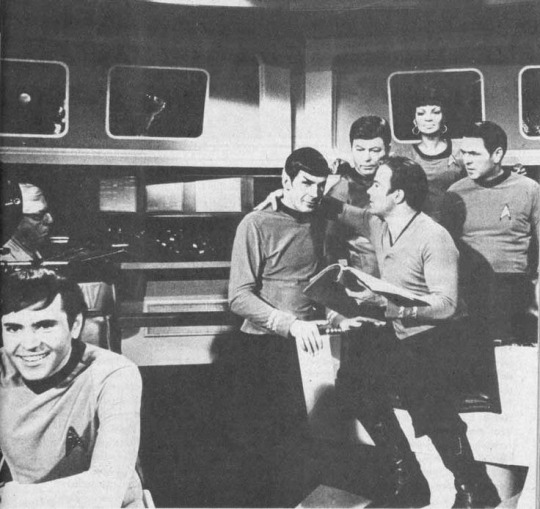
I don't know what's going on here, but you know what? I don't want to know; these are my comfort people, I just love them.
#(i've had this photo on my phone for way too long)#star trek#star trek tos#james t kirk#s'chn t'gai spock#nyota uhura#leonard mccoy#pavel chekov#montgomery scott#kirk/spock#k/s#spirk#f: poetic cinema#c: that's how you do it' by remembering who and what you are#c: logic is the beginning of wisdom' not the end#c: fear of death is what keeps us alive#otp: two halves of one soul#boldly going absolutely nowhere
413 notes
·
View notes
Text

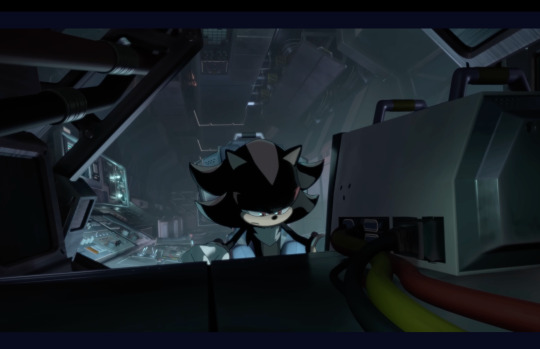
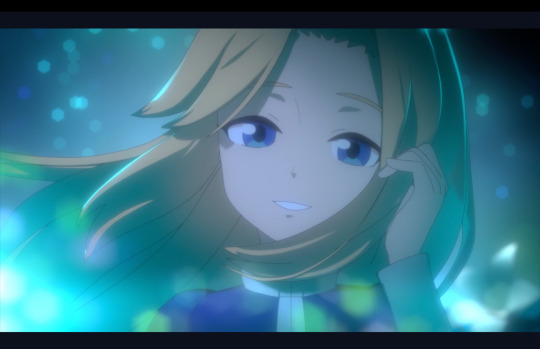
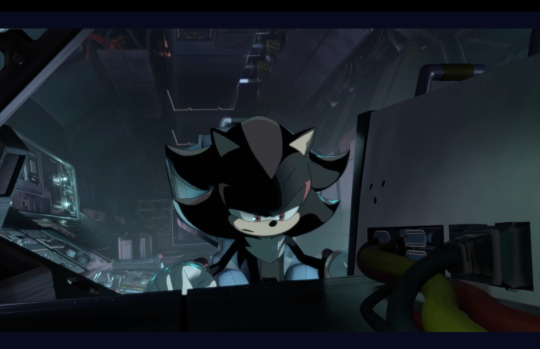
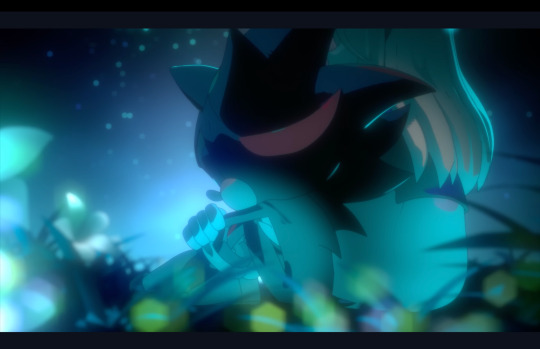
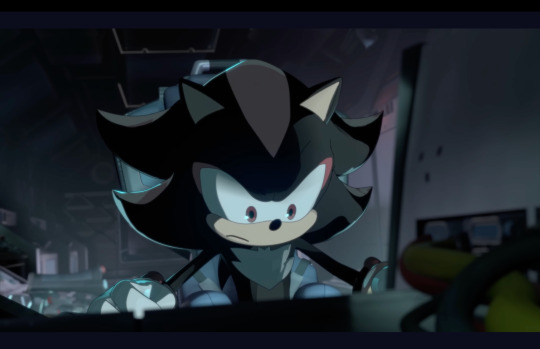
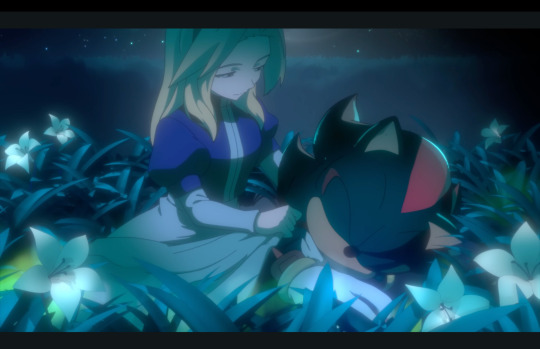
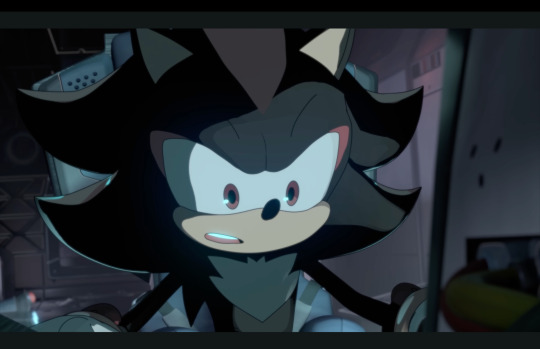
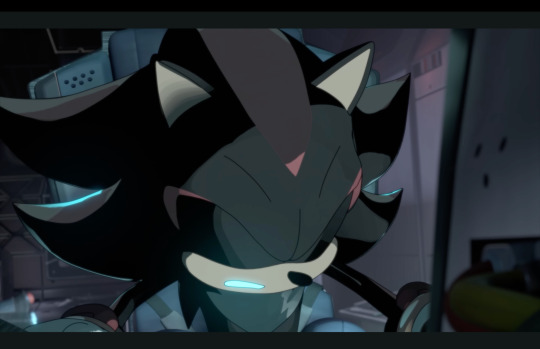
Pardon me while I go weep for three hours
#this ENDING MAN#LIKE THE MOST DRAMATIC ANIME ENDING EVER WITH THE M U S I C I AM SOBBING#NOT OK NOT OK NOT OK#SHADOW CHILD I WILL TAKE YOU IN MY ARMS#this is what we always imagine shadow’s experience to be like!!???!?#the excruciating grief over what might have been#AND NOW ITS CANON#*screaming*#shadow focusing on the very next thing he has to do has always been his instinct but he especially does it now as a coping mechanism#because otherwise if he lets himself think it becomes this#*sobbing*#shadow the hedgehog#dark beginnings#shadow the hedgehog dark beginnings#sxs generations#sxsg dark beginnings
65 notes
·
View notes
Text
man the clips of elphaba are the wicked movie is charming enough that they are somewhat reversing my 2 yrs of deep dislike,, i do greatly enjoy how cynthia acts her
#man I miss my hater era though#me and my bsf both left the theatre like. “holy shit I hate her”#slightly exaggerated since everyone exaggerates to their bsf. more dislike#and “holy shit I love glinda” because I liked being biased towards my whimsical blorbo#it feels wrong to think that now though.#even though I haven't watched the movie so my thoughts haven't changed#eg I still hate fiyero...#also glinda I love you always#ok I didn't *deeply* dislike elphaba “for good” made me tear up a little and I ADORED their friendship#just was annoyed at her at many points#especially the end girly did not deserve that#love her vocals though... utterly gorgeous voice#also the actress for elphaba in the show I watched was also very talented#ESPECIALLY as a singer#as a character she was always more c tier#from the beginning tbh. I was hoping someone would become more interesting and glinda did#the songs were bangers throughout#most of my reasons are spoilers#wicked the musical#elphaba thropp#glinda upland#wicked
18 notes
·
View notes
Text
The C2 boys go shopping for the fashion show
#carlos sainz jr#charles leclerc#scuderia ferrari#charlos#f1#c2#c square#Carlos’ jacket in the beginning was great#And his hairrrrr so nicely groomed#Why at the start they basically put Charles in a different version of his catwalk casting video outfit#‘I love this hoodie’ WE KNOW CARLOS#‘I know I know’#Pls their acting improved! …or was it just because they can be themselves here#Carlos’ fashion outfit…whew. So good#I like that look and aesthetic on him. Refined but soft.#I like Charles’ jacket but I wouldn’t put it with same coloured jeans#not Charles rushing to change that he don’t got a shirt on underneath#not Carlos trying to strip Charles on camera at the end
83 notes
·
View notes
Text
The most frustrating part abt not being able to get into my bluesky account is not being able to find any info on the soup for the pirate soul project anywhere else. Deadass my fear is it was only on bluesky bc I can't find anything on here, Insta, reddit even (which I normally avoid like the plague for this fandom lmao.)
Which means there's probably info on twitter, but I'm not going on there for anything
They have my email from the Google form (provided it when opportunity was given to do so) and I'd hoped they might reach out, or I might get a msg from them on bluesky abt still participating (bluesky used to send me notif emails abt new messages, which then maybe I could use to get a response from their team abt getting back into my acct since I've not gotten anywhere with that otherwise. Not to shit on them, it's a new platform and a work in progress, but still this has been frustrating)
I feel really bad bc to them it seems I ghosted but like. I didn't. There are tech issues with bluesky and I can't get any help from them despite trying to, I would still love to participate! But idk now to do it at this point lmao
#text post#maybe this is a sign i shouldn't have signed up to begin with#i didnt even know much abt who was putting it together obviously lmao#just knew they were other fans/in the izzy fan sphere of things and that's usually enough for me#since i otherwise keep trying and failing to interact more with other fans#why do i keep trying when i also keep telling myself to stick to the yearly izzy bingo; sharing info abt art projects; and posting my fics#and that's it. i tell myself that and then do shit like this#genuinely i feel terrible if someone who knows the organisers and can reach them pls let them know I'm so sorry abt this#i thought it wouldn't be this hard to get my bluesky acct fixed but apparently. lmao#and I'll keep my nose out of any other projects that aren't like#a bingo game thing or something else lower stakes#since the universe seems to be telling me that's my place lmao#and pls dont even ask abt conventions lmao#I've had well meaning folks in my inbox ask but A. cant afford to travel#B. cant afford to make my izzy cosplay better rn#and c. im terrified that I'll only run into the folks that harassed me somehow tho obvi this one is stupid af for me to worry abt lmao#maybe someday I'll have the funds and bravery for a convention but until then i have izzy bingo drafts begging for me to end and post them
6 notes
·
View notes
Text
-give me coffee-
crowley: *examining his reflection in a teaspoon*
nina: *clearing tables*
crowley, gestures: ah, you, nina. gonna need your strongest coffee ASAP
nina, signals to a colleague: sure *notices crowley yawning and looking over his shoulder frequently* someone keeping you up or something?
crowley, shrugs: something like that
nina: *raises an eyebrow*
crowley, sighs: ok so I kissed him-
nina, smirking: alright. about time
crowley, ruffling his hair: yeah well now he won't stop kissing me. at all. ever. he's insatiable. he thinks I'm in the bathroom at the bookshop. I mean, yeah, it's great, I love it but I need a break, you know
nina: okay well can't you just tell him that?
crowley, scoffs: hngh yeah sure
nina, sits opposite him: well you could always...distract him...with something else
crowley: ...
crowley: eeeh, chess isn't really his thing
nina: ...
aziraphale, enters: ah, there you are. um *glances at nina* I need your help...in the bookshop *winks exaggeratedly*
crowley, hesitates: can't jim help you out?
aziraphale, thinking: hmm. I suppose he could. I don;t think it'll be nearly as enjoyable but it's worth a try *turns to leave*
crowley, frowns: hey, hey!
aziraphale, frustrated: what?
crowley, pointing: well, you can't just go around kissing jim!
aziraphale, through gritted teeth: well, then you'd better hurry up *leaves*
nina: *staring*
crowley, sighs: I've created a monster *downs his coffee; leaves*
nina: ...
#I had no idea how to end this. originally crowley does what nina suggested but this made more sense to me#ineffable husbands#good omens#good omens 2#ineffable chatfics#a: *after getting kisses senseless for six more hours* why haven't we been doing this since the beginning?#c: *absolutely exhausted but living his best life* it wasn't for lack of trying angel
152 notes
·
View notes
Text

A couple of thoughts on Spock and McCoy's relationship (and, probably, about K/S too).
It becomes more apparent in season three, though it's actually an ongoing trend, that McCoy often worries about Spock more than about Kirk when they're both in danger. Not because he worries about Kirk any less, but because he worries about Spock differently. In S3EP10 "Plato's Stepchildren," the most psychologically difficult episode that N and I watched the other day, this is well-read in the moment of bullying that Parmen arranges when he tries to convince McCoy to stay. Kirk, of course, orders McCoy not to accept Parmen's offer under any circumstances:
KIRK: McCoy. No matter what he makes me say or do, the answer's no. MCCOY: No, Parmen! Stop it!
And as hard as it is, McCoy holds himself back because he respects him as a captain first and foremost. He worries about Kirk, of course he does, it's natural for him, it's a habit developed over the years and close friendship, but he trusts his decisions:
(Kirk rolls in agony.) PARMEN: Well, Doctor? MCCOY: I have my orders.
But when it comes to Spock, it's more complicated. He has an awareness of the limits of Kirk's endurance (and again, he has to see him as a captain first and trust him in that), and the way he worries about Kirk is objectively logical. But his worry about Spock is more of an emotional response. He noticeably distrusts Spock's ability to recognize his own limits, especially emotionally, often referring to his emotional repression. He worries about Spock in a way that Spock himself is incapable of worrying about (or at least incapable of doing so fully), about what Spock constantly neglects - his psychological state:
(Spock is forced to dance close to Kirk's head. Flamenco-style, I think, ending with a boot directly over Kirk's face. Then Spock is allowed to rest, and he starts to laugh heartily. He crawls over to Alexander, who cannot help but join in.) MCCOY: He's a Vulcan. You can't force emotion out of him. PHILANA: You must be joking, Doctor. MCCOY: You'll destroy him. PARMEN: We can't let him die laughing, can we? (Now Spock cries.) MCCOY: I beg you.
McCoy definitely cares about him. All those scenes where he suddenly and seemingly for no reason starts lecturing Spock about his inability to feel feelings and accept his own emotions are usually the very moments when Spock actually feel feelings but trying to repress it, which makes me think that McCoy is telling him all these things at those moments not because he's an insensitive bastard, but because he's just very aware of what's going on with Spock emotionally.
Unlike Kirk, who is actually very similar to Spock in his perception of the world and his way of thinking, McCoy and Spock are really radically different people. He doesn't understand Spock as fully or as deeply as Kirk does, but he can understand Spock's emotional state (and he can be straightforward with him about it). Where Kirk accepts Spock unconditionally and completely for who he is (with Spock's inability to feel in a normal human way, this complexity of his world, this internal struggle), preserving that right for Spock to be exactly that, because again, Kirk doesn't want him to be anything other than who he is, even if it means he can't be with him the way he wants to (which brings us back to the similarity between Kirk and the Companion from Metamorphosis), McCoy doesn't need to do this. He doesn't buy into all that Spock "too complicated to feel simple feelings" nonsense, and he doesn't hold back on his choice of words when it comes to talking about it. McCoy perceives Spock through the lens of his own human perception, seeking in him what he can understand and explain through emotion. And while this is not real acceptance, it's also not an attempt to change him. In fact, it's this emotional vision of McCoy, his pressure on Spock's emotions, that quite often turns out to be true, because Spock obviously still has a human side.
When we observe the dynamic between the three of them, we realize that Kirk's feelings about Spock are obviously different from his feelings about McCoy, who is apparently his closest friend in TOS (which makes me as a viewer wonder if this was done consciously, considering that K and S relationship was really positioned as special and unique, even without any romantic reading). And McCoy undoubtedly understands how indispensable, unique, viscerally important Spock is to Kirk. He, more than once, when faced with a choice between danger for himself and Spock, tries to take the hit, realizing that losing Spock would be harder for Kirk. The whole dynamic of McCoy and Spock's relationship reminds me of a situation where your best friend falls in love (so completely and irrevocably), and trying to understand why he did it and what he found in this other person, you start to look at them, and in the process of this exploration, you unexpectedly get used to them, find your comfort in their company, and (just a little, of course) you start to understand why your friend fell in love so much. This person becomes dear to you, and you start to worry about them no less than you do about your friend, and maybe even more, because you understand that this person is vital to your friend's happiness, the most important in the whole world to him. So, in the end, McCoy now has to take care of two idiots instead of one, which hardly makes his life easy.
Therefore, the well-being of these two is personally important to him. He often reacts angrily to the actions of either of them when it could hurt the other, and more than once acts as a "voice of reason", reminding (not always gently) of this super-importance between the two of them. To a certain extent, it is Kirk, their shared concern and responsibility for him, that really holds McCoy and Spock together, and I think that if Kirk had died, this delicate attachment that exists between them would have collapsed under the weight of grief, although in the opposite situation McCoy and Kirk's friendship and Kirk and Spock's closeness would have survived. But in all this, McCoy really, genuinely worries about Spock. Unable to fully understand and accept his complexity, he simultaneously sympathizes with him and tries to help in any way he can. And he's also important to Spock, not just as Kirk's closest friend, someone who's emotionally important to him, but, actually, as his own friend too. Their relationship is more fragile and complex than a simple friendship, and often exists despite contradictions, but what unites them outweighs the rest, bringing some balance.
#i wrote this post for a long time and at some point i lost the idea i started with#so it must be quite chaotic#but i'm so interested in watching the interaction between these two#which is definitely more complex than a normal friendship#but not as absolutely-impossibly-all-encompassing as what happens between k/s#frances talking#long post: st#star trek#star trek tos#james t kirk#s'chn t'gai spock#leonard mccoy#kirk/spock#k/s#spirk#f: poetic cinema#c: that's how you do it' by remembering who and what you are#c: logic is the beginning of wisdom' not the end#c: fear of death is what keeps us alive#otp: two halves of one soul#brotp: why is it when something happens' it's always you three?#st: more content from the secretly british shakespeare nerd#st: how do you write about someone that you have so deeply loved?
96 notes
·
View notes
Text
The (entirely undisclosed) writing system Brin came up with in the World of Elan drives me nuts. Symbols were made with consideration for the schwa sound and their version of S looks like an O. (Or at least, whatever the first sound in their word for 'sun' is, that letter looks like an O.) The schwa accommodation alone means it's not the Latin alphabet. The S/O thing is probably further proof it's not the Latin alphabet, but could also indicate they're not speaking English. Which is kind of a moot point because everything pre-Riyria is implicitly localized into English if for no other reason than that most of the Fhrey language is blatantly localized and in Legends and also the old writing in Riyria does not match modern speech which is, itself, portrayed in English.
Anyway, it's not the Latin alphabet nor does it seem to be a cipher of the Latin alphabet because, again, it's got schwas. Assuming I read the bit about Brin and Roan discussing schwas correctly, anyway.
So they're not speaking English probably and they're also definitely not writing with the Latin alphabet or a 1:1 cypher... yet in Death of Dulgath, Payne makes a point of explicitly stating that his name is spelled with a Y and an E rather than an I, and Royce later makes a quip about his name being Pain after all.
(Not even gonna get into all the other times etymology is made up for words in the story, or the apparent vowel shift that managed to happen during the only few centuries of the empire where reading was wide-spread.)
I understand this is all still something that can be handwaved by saying "it's just localized into English" but my brain is still churning over this. Like...
Royce's whole entire name comes from a misread of Roy, a couple city segments reduced to initials, and someone slurring the words "male" and "born" together. And I'm gonna just ignore that the E in Royce is silent and the implications that has on the in-story alphabet. I'm not ignoring it. "Royce" only has three phonemes in it and even if you assume that the actual city section symbols were swapped out for Latin alphabet letters, how much space does that leave for the name Turin claimed while dropping him off at the orphanage? Did Brin invent a whole entire alphabet with useless extra letters despite her writing system actually being tailored for the language it was made in? Did the local language morph to the point of dropping certain sounds but keeping the old spelling, thus generating silent letters? Why? The vowel shift that I said I wasn't gonna get into seems, at least from how I read it, to mean that words are outright spelled differently between Fariland and Esrahaddon's time, which seems to imply that they adjust spellings to stick to pronunciation more readily than English does. But his last name is just comes from slurring the words "male" and "born" together. Given that there's no necessary reason for those words to be the same, what's his real name.
I understand that any second-world fantasy I read that uses names that sound like English words technically has this problem, but most of them don't also reference inventing an a writing system that explicitly isn't English and then making me think about it.
Realistically, I don't want Tolkien levels of worldbuilding. I like conlangs and fantasy writing systems, but when they're on the level of needing to read an appendix to learn that the fantasy language actually has a formal and informal you but only in certain cultures and some of the characters didn't use it and there were nuances to the social interactions I read that went overlooked due to all utterances of "you" being translated with the same word in English, you are expecting too much of me as a reader. But like... there is a little part of me that wants to know what their real names are when you tie their names to a bunch of words that I'm assuming were localized.
Also I'd like a Fhrey dictionary. I just... I need to know the pattern for the words. I want this.
#riyria revelations#legends of the first empire#world of elan#riyria#riyria chronicles#i guess the upshot is that this can all be summarized as “i'm putting this down to localization but what are their REAL names?”#whereas i'm straight up mad about the inheritance cycle runes#you're really gonna give me a plain latin alphabet cypher like that?#if you just wanna make me “feel like i'm in murtagh's world” then label your map without translation#if you're gonna make it legible then just put it in english#screw that nonsense with putting it in a straight up latin alphabet cypher that you dolled up to look like runes#that's too much effort to read for you to not follow through on the world building and make the runes feel organic rather than like a cyphe#you don't get to pronounce the G in “murtagh” and then...#...only give me samples of your made up alphabet that use silent and redundant letters#why is there a rune for C?#why is there explicitly a rune for C specifically that adheres to the pattern used for similar sounding letters#who makes unique runes for every accented E then goes “there's still one A. it makes a half a dozen different sounds depending on context”?#what are the ODDS that Eragon's world would incidentally develop the same stupid redundant letter that the romans dumped on us?#this was a riyria post but that's my side rant about the inheritance cycle#why did my family push me to study medicine i wish i studied linguisitics i wanna know what the odds actually were#i just wanna know what brin's alphabet started as and if it has silent letters now#(that's a lie i also wanna know what it looks like.)#i wanna know how to spell royce's name in his writing system#is there a letter that looks like an O at the end? DOES he use a silent letter?#does he not use an O because their version of 'sun' begins with a different phonetic sound?#or does he use a different letter because brin ALSO felt the need to specifically make a redundant letter that S and K already covered?#(also is there and in-story explanation for why 1st century falkirk's speech sounds closer to modern than 19th century esra?)
7 notes
·
View notes